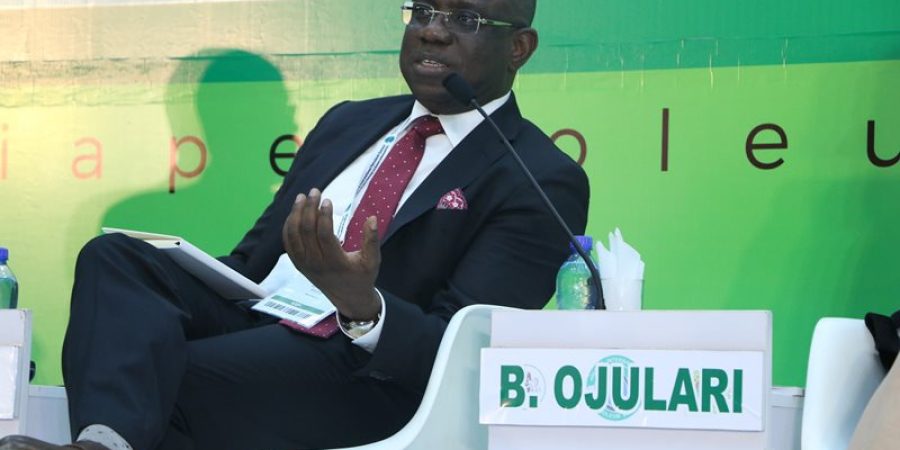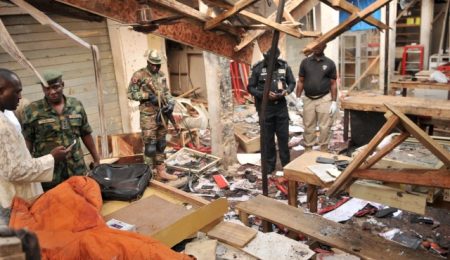The Nigerian National Petroleum Company Limited (NNPC) has said the sale of the country’s crude oil refineries was not ‘off the table’, disclosing that the rehabilitation of the facilities had become more complex than expected.
The Group Chief Executive Officer of the national oil company, Bayo Ojulari, who spoke during the just concluded 9th OPEC International Seminar in Vienna, Austria, revealed that the technologies imported to fix the facilities are largely misaligned with the refineries as a result of old age.
Ojulari’s disclosure on the state of the refineries came a day after Africa’s richest man and President of the Dangote Group, Alhaji Aliko Dangote, also doubted the possibility of the state-owned Port Harcourt, Warri, and Kaduna refineries functioning again, putting the cumulative spending on rehabilitating the refineries so far at $18 billion.
Dangote had likened the turnaround maintenance of the refineries by the NNPC, whose former officials are currently answering questions from the Economic and Financial Crimes Commission (EFCC), to trying to modernise a car built 40 years ago, when the technology has advanced.
Aligning with Dangote’s position, Ojulari, during an interview with Bloomberg, in a video shared by the NNPC, noted that although a lot of investment had been made on revamping the refineries, the issue has become challenging.
Ojulari said: “So our refineries, we made quite a lot of investment over the last several years and brought in a lot of technologies. We’ve been challenged. Some of those technologies have not worked as we expected so far. But also, as you know, when you’re refining (rehabilitating) a very old refinery that has been abandoned for some time, what we’re finding is that it’s becoming a little bit more complicated. So we’re reviewing all our refinery strategies now.
“We hope that before the end of the year, we’ll be able to conclude that review. That review may lead us to do things slightly differently. But what we’re seeing is that sale is not out of the question. All the options are on the table, to be frank. But that decision will be based on the outcome of the reviews we’re doing now,” the NNPC chief executive stated.
On the question of why Dangote has continued to import crude oil while Africa’s biggest crude producer continues to lag, Ojulari stated that the Dangote refinery remains a commercial investment, and therefore has the flexibility of importing crude from any part of the world for the company’s survival.
However, Ojulari admitted that the NNPC has to do more to ensure that there was a balance in terms of the crude Dangote was importing and domestic supply, stressing that the national oil company was working towards that.
“We think that will improve. But what we want to do is that we want to move away from government domination of private sector businesses. We want the private sector to have the freedom…So if Nigeria is going to provide more supplies to Dangote refinery, it will be on a commercial willing buyer, willing seller basis, not because it’s a policy,” he added.
On Nigeria’s quest to raise crude output, Ojulari stated that by the end of the year, Nigeria is hoping to have hit 1.9 million barrels per day, noting that on the cost of crude oil production per barrel, the operating cost, rather than capital cost remains the major culprit.
“On the cost of crude production, there’s a capital cost and there are the operating costs. The operating cost right now in Nigeria is hovering over $20 per barrel, which is quite high. Part of that is because of the investment we’ve had to make in terms of security of our pipelines, which, as you know, today we have 100 per cent availability of our pipelines.
“That has led to significant investments. So we believe with time, with stability, that cost will start going down. But for now, it’s somewhere between $25 and $30,” he added.
Ojulari stated that it took several years to get the government policies aligned on tackling insecurity in the Niger Delta, explaining that the government’s security agencies are also working with local surveillance groups from the communities, to sustainably provide security by making jobs available for the oil-producing areas.
He disclosed that the NNPC would be ready for a stock market listing by 2028, emphasising that the national oil company would be prudent under the new leadership recently appointed by President Bola Tinubu. “We have a roadmap to be listed by 2028,” Ojulari stressed.
He told his audience that Nigeria remains an investment destination as it concerns the oil and gas sector, reiterating that the country has an ambition to achieve 3 million barrels per day of oil in 2030 and 12 billion cubic feet of gas during the same period.
The Nigerian government, through the NNPC, recently embarked on about $3 billion rehabilitation programme aimed at reviving the country’s ailing refineries in Port Harcourt, Warri, and Kaduna.
Despite the substantial investment, the process has faced significant hurdles, including funding delays, technical setbacks, and complications arising from outdated infrastructure.
Here’s a more detailed overview of the shutdowns at Nigeria’s Port Harcourt and Warri refineries:
In late November 2024, the Port Harcourt refinery was recommissioned following a $1.5 billion overhaul, initially touted to run at 70 per cent capacity, but the refinery continued to struggle until it was shut down in May 2025.
In the same vein, information on the Warri refinery remains hazy, but it was said to have resumed operations at 60 per cent capacity on December 30, 2024, following an $897.6 million rehabilitation.
This plant is believed to be inactive, following a shutdown earlier in the year, due to a critical fault in the Crude Distillation Unit (CDU) main heater—a major safety risk that forced a complete halt in processing. The NNPC has said work is ongoing on the Kaduna refinery.
Emmanuel Addeh
Follow us on:



